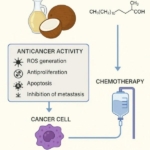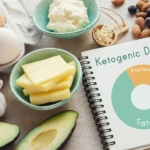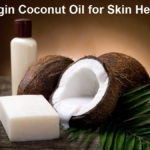Coconut Oil: Uses and Issues on its Health and Nutraceutical Benefits
by Emil V. Carandang, MS
Technical Manager
Philippine Coconut Research and
Development Foundation, Inc.
I. Introduction: The coconut industry is one of the most important industries in the Philippines. It is the industry that brings in much needed dollars, generating a record high of US $1.2 billion, provides livelihood for almost one-third (1/3) of the Philippine population, and yet it is an industry that is most maligned. This industry has provided financial assistance for the development of some cities, municipalities and provinces and even other industries but receives less help from the national government. Lately, with more than P100 billion worth of assets, the coconut industry has become a matter of concern for many Filipinos and to a certain extent even religious groups.
In the mid 50’s, there was considerable interest in the role of dietary fats and oils in relation to the hardening of arterial walls due to cholesterol which leads to cardiovascular disease. Hundreds of studies were conducted to determine the relationship between cholesterol and heart disease but until now, scientists and medical researchers can not see any concrete evidence showing that cholesterol causes heart disease.
During the same period in the US, coconut oil (CNO) was very much used as edible oil until the issue of saturated fats in relation to cholesterol enhancing effects was highlighted. This started when a researcher from Minnesota tried to show that saturated fats really increase blood level cholesterol. He fed mice with fully hydrogenated coconut oil. Results showed that fully hydrogenated coconut oil increased the level of cholesterol. This study was reviewed by Harvard scientists who concluded that any fully hydrogenated oils devoid of essential fatty acids when fed to animals will really cause increase in cholesterol in the blood.
To validate, another group of researchers in the US conducted a study using fresh/raw coconut oil. The results showed that raw coconut oil is neutral and does not cause an increase in the level of cholesterol. Results also showed that CNO increased the HDL level while it decreased the LDL.
Another tropical oil, palm oil, was slowly penetrating the US market getting the market share from soybean oil. US soybean interest (American Soybean Association) with the help of edible oil industry and consumer activists, the Center for Science in the Public Interest (CSPI) group, lobbied in the US Congress to subject tropical oils to pejorative labeling because of the mistaken idea that consumption of these oils (saturated fats) will increase cholesterol that leads to cardiovascular disease. Even the food-labeling rule was greatly influenced into requiring the declaration of the level of saturated fats in the product.
Until the Nutrition Labeling and Education Act of 1990 was passed into law, efforts by the government and the private interest groups in the US and to a certain extent in other parts of the world were towards discrediting coconut oil. This adversely affected our coconut industry. Everything the public has been told about vegetable oil in their dietary guidelines is half-true. Consumers were made to believe that tropical oils will clog arteries and can cause heart disease.
B. Coconut Oil Health Issues
Phil Sokolov, a US millionaire from Omaha, Nebraska, president of the National Heart Savers Association in the US and a recovered heart attack patient ran a full-page ad in the US dailies in the late 80’s, which bannered “THE POISONING OF AMERICA”. He accused food companies of poisoning America by using tropical oils such as coconut oil. As a result major food companies sensitive to consumer fears started to reformulate their products even to the extent of putting on their labels “no coconut oil”.
Coconut oil is rich in saturated fats and many people bracket it with animal fats. In contrast with animal fats which contain cholesterol, coconut oil, because of it is vegetable source has no cholesterol. Unfortunately those who equate CNO with other saturated fats do not understand that saturated fats are of different types. There are two (2) types: medium chain (those fatty acids with carbon length of 3 to 12) and long chains (those fatty acids with carbon length of more than 12). Coconut oil is mainly composed of medium chain fatty acids (MCFA), which are easy too digest and converted to energy. They do not raise cholesterol nor increase the risk of heart disease. Animal fats are long chain fatty acids (LCFA) which have the ability to raise cholesterol and are easily stored in the body as fats.
CNO as MCFA is faster to digest and has better solubility in biological fluids. It gets absorbed readily and is carried to the liver were it undergoes rapid oxidation to release energy. This is the reason why coconut oil is preferred when cooking for people who have difficulty digesting fat. Coconut oil is used in infant milk formulation to supply fat. This facilitates absorption of calcium and magnesium essential for bone development. Mother’s milk, especially the colostrum, is rich in lauric fatty acid, a major component of coconut oil. This is the one responsible for protecting the newborn baby against disease and many more.
Animal fats on the other hand have LCFAs and need pancreatic lipase to be digested. They do not mix easily with biological fluids. They bypass the liver and go around to all parts of the circulation system carrying with them a heavy load of cholesterol before going to the liver for final oxidation.
D. Doctors’ Recommendation to Use Polyunsaturated Oils Like Soybean and Corn Oils
Many doctors give advice not to eat foods with saturated fats. Instead they recommend polyunsaturated oils like soybeans, corn and others. Even the United States Department of Agriculture and the United States Food Drug Administration know that these polyunsaturated oils are unstable, have short shelf-life and becomes rancid easily. Polyunsaturated oils have LCFA and are liquid at room temperature even inside the refrigerator. They easily combine with oxygen in air, thus becoming rancid. This reaction results to peroxide formation that can trigger mutations or deformities in the developing fetus, or sometimes even cancer. During seizures lipid peroxidation occurs and some scientists theorize that this might be responsible for the nerve cell degeneration of Alzheimer’s disease.
It is not common knowledge that the use of these oils claiming to have high content of polyunsaturated fatty acids is bad for the health as they produce large amounts of oxidants inside the body which eventually make the cells age faster and then die. To avoid this, these oils are partially hydrogenated. However, the process has proven unfavorable to the “new” oil due to the formation of transfatty acids which are unhealthy.
A study in the US claimed that polyunsaturated oils lower the serum cholesterol. Again this research is not complete. Chemical analysis of atheroma (deposits in the inner arteries of the arterial walls) shows that fatty acids from the cholesterol esters are 74% unsaturates and 24% saturates. None were reported to contain lauric or myristic acids normally found in CNO. Since PUFA is circulating inside the body, these atheroma composed of cholesterol esters are taken into the tissues, thus findings indicate that PUFA lowers the blood cholesterol without due consideration of the tissue cholesterol. It also lowers the bad cholesterol by 24% but lowers also the good cholesterol by 41%. A higher ratio between LDL/HDL in an indication that the person is prone to cardiovascular disease or heart attack.
In order to prevent peroxidation or rancidity, the hydrogenation process is applied. Thus the natural fats known to our body become synthetic or artificial. As a result of this partial hydrogenation, the normal configuration “cis” (curved or curled structure) becomes different resulting to the formation of “trans” (straight structure) fatty acids.
When ingested, traces of trans fats can be seen in red blood cells which should not contain any. This weakens the membrane’s protective structure and function, altering the transport of minerals and other nutrients but permitting entry of disease microbes and toxic chemicals.
Trans fats also derail the body’s normal mechanisms of eliminating cholesterol by blocking the normal conversion of cholesterol in the liver and contributing in the elevation of cholesterol in the blood. It also lowers the quality and quantity of milk from lactating mothers, results in low birth weight, increases the risk of diabetes, decreases levels of testosterone in males forming abnormal sperm cells.
Coconut oil, which is a Medium Chain Triglyceride (MCT), easily bypassed the digestive tract and is quickly absorbed by the liver so it can be used for energy. Other benefits form MCT are its anti-aging effect, potential anti-cancer and anti-microbial/anti viral properties.
Despite the benefits given by coconut oil, large food manufacturing companies in the US refuse to reformulate back to coconut oil even though they have personal knowledge in the potential benefits of returning to CNO. It is the public health agenda that dictates. This is because consumer and nutritionist perceptions are what drives buying. Re-educating the consumer, nutritionist and the manufacturers must be effectively directed to those people who contest the government agenda. This will be difficult because much of the control comes from ignorance and the rest from the US domestic oil industry.
III. Coconut Oil as Nutraceuticals
During the early days, coconut oil was an important part of traditional medications. People used herbs and parts of certain trees. Coconut oil concoctions applied directly to wounds or swollen areas provided quick healing. It is not only in the Philippines that these rituals have been practiced even up to the present but also in many other countries in Asia, the Pacific Islands and some parts of Africa. They believe that coconut oil has a special healing and divine power.
The word nutraceutical has been invented to define natural, standardized non-toxic dietary supplement designed to optimize health through improved nutrition. What separates nutraceuticals from an ordinary dietary supplement is that nutraceutical benefits can be substantiated with scientific facts in the prevention of chronic diseases such as cancer, heart disease and osteoporosis. It is any food or food ingredient considered to provide medical or health benefits, including the prevention and treatment of disease and at the same time improve state of nutrition.
A. Nutraceutical Markets
The market for nutraceuticals is growing quickly worldwide and it is this global scope that particularly attracts marketers. It is estimated that the US market alone is worth some US$250B, Europe another US$250B, and Japan, US$4B. nutraceuticals have opened a host of business opportunities, economic (health care-cost savings) and quality of life opportunities.
It will be necessary to discuss nutraceuticals thoroughly with regulatory agencies to study issues, options and to determine what scientific information about nutraceutical products cold be required to bring about positive, realistic regulatory changes so as to facilitate appropriate promotion and marketing of nutraceuticals based on their risk-management or disease preventive attributes.
B. Problems and recommendation
In many countries like the Philippines, present laws block important nutraceutical advances because they fall outside the traditional regulatory concept of either a food or drug.
We must also consider reducing the cost of chemical trials, which can be offset through government programs and policies.
It may be necessary to facilitate and/or coordinate the development and implementation of a multisectoral communication strategy to build awareness with respect to the wide and interesting range of nutraceutical products and the benefits they might offer.
C. Application of Coconut oil in Nutraceuticals
Coconut oil can be classified as nutraceutical product. It is rich in MCT, primarily the lauric acid (C12), and a type of fat that is proven to fight many viruses including herpes, HIV, bacteria, fungi among others. It is an excellent cooking oil. Not only can it withstand high temperature but also it does not break down easily. Its being an MCT is good for people with AIDS, and also for geriatric patients as it contributes to faster surgical recovery. Coconut oil has an advantage compared to polyunsaturated oils because consuming polyunsaturated oils can cause “acquired immunodeficiency.” It weakens the immune systems function in ways that are similar to the damage caused by radiation, hormone imbalance, cancer, aging and viral infection.
Coconut oil or its derivatives is also good for transdermal deliveries and for people suffering from chronic disease. It is even highly recommended for athletes for quick energy instead of sugars.
D. PCRDF Nutraceutical R&D’S
Even as early as 1990, PCRDF was already exploring the possibilities of finding other uses of coconut oil or its derivatives. Such studies include using CNO for the production of structured lipids. CNO is essential fatty acid (EFC) deficient. Combining CNO with EFA enriched oil at 75:25 proportion provides patients faster recovery from malnutrition and disease prevention.
In 1998, PCRDF together with San Lazaro Hospital and UNILAB conducted preliminary studies in the use of monolaurin, a monoglyceride of C12, on fifteen (15) HIV positive patients and the results gathered were very encouraging. Expanded studies involving fifty (50) HIV positive persons are currently being undertaken using monoglyceride of lauric acid from coconut oil. It has been found that monolaurin disrupts the lipid membranes of the enveloped HIV viruses. There were laboratory studies conducted showing monolaurin can also inactivate bacteria, yeast, fungi, inhibits the growth of Helicobacter pylori and many gram positive bacteria such as those surface skin bacteria that can cause pimples, acne, and warts. Our studies showed also that adding monolaurin to certain antibiotics could solve the problems of bacterial preventing endotoxin shock in animals. Now, a similar product is coming out but using soybean oil emulsion. Another study showed that coconut oil could prevent cancer and mutations unlike the polyunsaturated oils that can trigger cancer and mutations due to free radical formation.
In Iceland, another type of monoglycerides from coconut oil called monocaprin (monoglyceride of C10) has been found effective in destroying AIDS Viruses. Other possible uses are against Hepatitis C, multi drug resistant TB, ulcers, etc.
For those who want to have slim bodies, coconut is highly recommended. CNO can increase the thyroid function and metabolic rate explaining why people and animals that regularly eat coconut oil are lean and healthy. It is a very good hair conditioner and can be used for body massage leaving no greasy feelings.
CONCLUDING STATEMENT:
The coconut tree provides so many things form the roots, to the trunk, flowers, fruits, leaves and the nuts. The things mentioned above are just the tip of the iceberg. It is one of the industries that can be the source of a lot of opportunities, the very same industry that others think is a sunset industry. R&D efforts will be nothing, reports like this will be insignificant unless those people that influence the policy makers and running the government are convinced so that they can directly influence the masses and consumer. Otherwise, the coconut industry will stay the same. Let us not forget that one-third of our population is directly and indirectly dependent on coconut. Pursuing and adopting these new discoveries, we can never be wrong in believing that the coconut is indeed a TREE OF LIFE.



 HHS Secretary Kennedy Breaks His Promise: "War on Saturated Fat" Kept in Tact with New U.S. Dietary Guidelines
HHS Secretary Kennedy Breaks His Promise: "War on Saturated Fat" Kept in Tact with New U.S. Dietary Guidelines Research Continues to Show Virgin Coconut Oil's Effectiveness in Treating Cancer
Research Continues to Show Virgin Coconut Oil's Effectiveness in Treating Cancer Coconut Oil Continues to Benefit Alzheimer's Patients over Drugs as Studies Continue for Neurological Benefits
Coconut Oil Continues to Benefit Alzheimer's Patients over Drugs as Studies Continue for Neurological Benefits How the Simple High-Fat Low-Carb Ketogenic Diet Continues to Change People's Lives
How the Simple High-Fat Low-Carb Ketogenic Diet Continues to Change People's Lives New Studies Continue to Show that Coconut Oil is the Best Oil for Treating Skin Conditions and Maintaining Healthy Skin and Teeth
New Studies Continue to Show that Coconut Oil is the Best Oil for Treating Skin Conditions and Maintaining Healthy Skin and Teeth